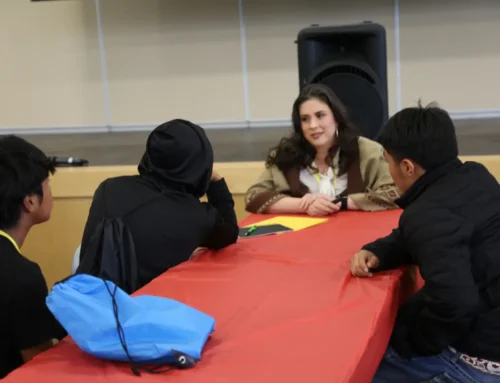
I just received a text from Ed Jr. “Hey Dad, I’m going to stay afterschool for cross-country try outs. Can you pick me up at 5:30?” Ed’s a freshman in high school this year and for the first time ever, wants to participate in school sports. His sister, Emma, is always staying after school, but it usually has to do with her friends. “We’re trying out for the school play, Dad” or “I’m going to help with the 7th-grade dance tonight, Dad.” I wondered what research had to say about the extracurricular activity. Are some things better than others? Do the benefits outweigh any possible negatives?
Most of the research on the benefits of extracurricular activities is not new. A 2005 study by Everson and Millsap, entitled “Everyone Gains” found that “extracurricular activities are one of the best investments that a school can make to help promote achievement, student engagement, and the attitudes and habits that lead to college aspirations and ultimate success.” And not surprisingly, at-risk students gain more than their peers. Participation gives all students a feeling of belonging and comradery that they don’t necessarily get by merely attending classes.
In 2000, Holloway found that all students gain valuable skills and a sense of accomplishment by participating in student activities. Specifically the following:
- Learning task completion and the benefit of practice.
- Success builds confidence which supports greater academic achievement.
- Connections to other students are strengthened in a team activity.
- Participation builds character; tenacity, self-control, and commitment.
Because extracurricular activity is a self-selection process, it appears hard to determine if some activities are better than others. While Fujita (2006) surveyed junior high students to answer this question, the results were inconclusive. Improved academic performance was noted for all students participating, regardless of the activity.
The Fujita study did however, provide a couple of cautions for parents. “Parents need to be cautious that they do not force their children into participating for the sole purpose of increasing their academic performance.” And conversely, children should not be forbidden from participating in any extracurricular activities. “Participating in such activities has the potential of benefiting the child in more than simply an academic sense – it also aids them in developing social skills, life skills, and talents.”
And the only downside noted was the possibility of being overwhelmed. Students need to make choices, they can’t do everything.
Should Ed Jr. and Emma stay busy after school? I guess so! As their Dad, I will stay focused on their achievement and allow them to choose their activity. I will monitor and help them adjust if they don’t have time for academics. And I guess I better find time myself to get to whatever performances and games might come along!
For more information about what NWESD offers in terms of student programs and activities, visit the Extracurricular Student Programs portion of our website.
-Ed
Resources:
Everson, H.T. & Millsap, R.E. (2005). Everyone Gains: Extracurricular Activities in High School and Higher SAT Scores. College Board Research Report 2005-2. New York: College Entrance Examination Board. Retrieved from: http://research.collegeboard.org/sites/default/files/publications/2012/7/researchreport-2005-2-estracurricular-activities-high-school-higher-sat-scores.pdf
Fujita, Kimiko, (2006) . The Effects of Extracurricular Activities on the Academic Performance of Junior High Students. Undergraduate Research Journal for the Human Sciences, [Electronic version] 5 Retrieved from: http://www.kon.org/urc/v5/fujita.html
Holloway, John H., (Jan 2000). Research Link/ Extracurricular Activities: The Path to Academic Success?. Educational Leadership, 57 (4), 87-88
Mahoney, J.L., Cairns, B.D., & Farmer, T.W., (June 2003). Promoting Interpersonal Competence and Educational Success through Extracurricular Activity Participation. Journal of Educational Psychology, 95 (2), 408-418
Zaff, J.F., Moore, K.A., Papillo, A.R. & Williams, S., (Nov 2003). Implications of Extracurricular Activity Participation During Adolescence on Positive Outcomes. Journal of Adolescent Research, 18 (6), 599-630 Retrieved from: jar.sagepub.com by guest on Jan 15, 2015



